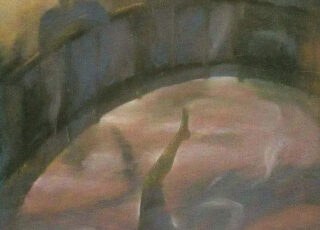Mill, Elements of Political Economy
Principles of Political Economy (1848) by John Stuart Mill was one of the most important economics or political economy textbooks of the mid-nineteenth century. It ...
Continue Reading →Desargues, The Rough Draft on Conics
Girard Desargues was a French mathematician and engineer, who is considered one of the founders of projective geometry. Desargues’ theorem, the Desargues graph, and ...
Continue Reading →Locke, A Letter Concerning Tolerance
Ever since humankind raised its head toward the heavens in search of universal understanding and spiritual fulfilment, wars, pogroms, persecution, prejudice, and contempt have been ...
Continue Reading →Mill, Law of Nations
James Mill (1773-1836) was a Scottish historian, economist, political theorist, and philosopher. He was the father of influential philosopher of classical liberalism, John Stuart Mill. ...
Continue Reading →Frederick the Great, On the Art of War
Frederick the Great (1712-1786), King of Prussia, initiated the Seven Years’ War in 1756; outfought the formidable French, Russian, and Austrian armies aligned against him; ...
Continue Reading →Grotius, The Free Sea
The freedom of the seas — meaning both the oceans of the world and coastal waters — has been among the most contentious issues in ...
Continue Reading →Locke, Concerning Civil Government
Two Treatises of Government is a work of political philosophy published anonymously in 1689 by John Locke.Locke’s family was sympathetic to Puritanism but remained ...
Continue Reading →Hegel, Philosophy of Right
Hegel’s last major published work is an attempt to systematize ethical theory, natural right, the philosophy of law, political theory and the sociology of the ...
Continue Reading →Grotius, Commentary on the Law of Prize and Booty
Hugo Grotius was a major figure in the fields of philosophy, political theory and law during the sixteenth and seventeenth century. Along with the ...
Continue Reading →Hegel, Political Writings
The ethical and metaphysical texts in this collection both illuminate and contrast with those political and historical texts in which Hegel draws important conclusions about ...
Continue Reading →Recent Comments
Categories
- _English Language 1430
- _French Language 55
- _German Language 69
- _Italian Language 54
- _Latin Language 45
- 1750-1850 64
- 17th Century 77
- 17th culture and other cities in Italy 5
- 19th century 45
- 20th Century 151
- 21th Century 75
- Aesthetics 5
- Afrofuturism 3
- Ancient Literature 37
- Anthropocene 1
- Anthropology 3
- Architectural Theory 223
- Architecture + Philosophy 37
- Architecture and Literature, Symbolism 36
- Art 13
- Art Theory 110
- Artificial Intelligence 10
- Artists in Rome 20
- Astronomy 2
- Autobiography 1
- Bernini 19
- Biology 5
- Catalogue 2
- Christian Iconography 18
- Christianity 13
- Cinema 2
- City 45
- Classical 1
- Construction 1
- Contemporary 2
- Design 29
- Digital Architectonics 23
- Drawings 41
- Economy 31
- Empire, Architecture + Catholicism 14
- England & British Isles 26
- Enlightenment Library 127
- Evolution 6
- Fashion 6
- Feminism 20
- Film Festival 1
- France 47
- Gender and Sexuality Studies 5
- Gothic 13
- Greek, Roman Library 99
- Historiography 43
- Humanism 12
- India 5
- Islam 5
- Italy 80
- Landscape Architecture 8
- LGBT 1
- Libraries 0
- Linguistics 6
- Literary Criticism 11
- Literary Theory 82
- Literature 86
- Low Countries (Benelux) 14
- Mathematics 61
- Medicine 4
- medieval library 38
- medieval literature 10
- Modern 51
- Monuments + Conservation 27
- Music Theory 1
- Mysticism 4
- Mythology 19
- Nature, Ecology, Animals 4
- Neurobiology 1
- Opera 5
- Philosophy 343
- Physics 16
- Poetry 6
- Politics 76
- Popes, Vatican, Rome 27
- Portrait, Sculpture, Materiality 56
- Post-Modern 22
- Programming 2
- Psychology 22
- Religion 23
- Renaissance 86
- Renaissance Library 80
- Rhetorics 1
- Roman Architecture 21
- Rome 122
- Schinkel 8
- Science 57
- Sociology 21
- Sound 7
- Sources 56
- Spain 10
- Switzerland 48
- Uncategorized 73
- Urbanism 53


